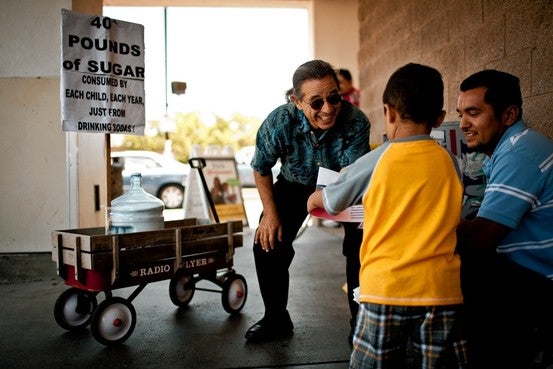WCP: On Race, Class, and Two Referendums in Richmond
Posted in Visiting Scholars | Tagged Ballot Measure, Health, John Russo, Politics, Richmond, Richmond Progressive Alliance, Sherry Linkon, Soda, Steve Early, WCP, Working-Class Perspectives
With Republicans at the helm in the Capitol, the labor movement must turn to state and local initiatives to advance a progressive agenda. In this week’s Working-Class Perspective, Steve Early points to two illuminating examples from Richmond, California to illustrate that progressives must be careful about what questions they put before the electorate.
“Measure N was the wedge issue from heaven. It enabled opponents to depict would-be soda taxers as racist, elitist agents of a local nanny state opposed even to the simple pleasures of an ice-cold Coke. As Richmond’s senior city councilor Nat Bates told the New York Times, “They’re using the black community to pass a measure for us without consulting us. . . . We’re tired of this Progressive Alliance coming in and telling us what to do. I’ve renamed them ‘the Plantation Alliance.’” Corky Booze, a council ally of Bates, predicted that the RPA would next try to tax sweet potato pie, candied yams, and cupcakes.
The Contra Costa labor council urged its affiliates to reject Measure N because it might reduce employment for Teamster delivery drivers and bottling plant workers. “We can’t make Richmond healthier with a new tax that takes money out of people’s pockets,” said one union official.
Big Soda’s successful racialization of the Measure N debate put local progressives on the defensive, in a campaign year when they should have been capitalizing on widespread public concern about lax Chevron maintenance practices which caused its catastrophic pipe rupture and fire. On election night, the RPA paid a heavy price for soda tax advocacy. Not only was Measure N defeated in a landslide, but for the first time since Progressives started running candidates, none were elected.”
Read the post in its entirety (new window) and explore other Working-Class Perspectives posts on our website.

